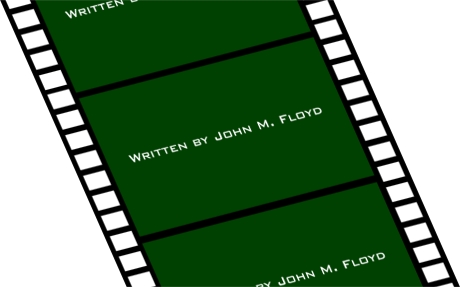Saturday, November 6: Mississippi Mud
A HARD WAY TO MAKE AN EASY LIVING
by John M. Floyd
Last week I listed several quotes from a documentary I saw recently, called Tales From the Script. In it, Hollywood screenwriters gave their opinions on the craft, perception, disappointments, and rewards of their often-misunderstood profession. I don’t see too many documentaries, as a rule — I’m too busy watching gunslingers, spies, UFOs, and PIs — but I thought this one was outstanding.
Since the column last week focused mostly on the actual writing of scripts, this time I wanted to show some observations of the “business” side of screenwriting. One of my favorites, from Josh Friedman (War of the Worlds), was “I saw some quote about being a professional gambler, and it was ‘it’s a hard way to make an easy living,’ and I think screenwriting is kind of the same thing. It’s a lot of fun, and it’s the hardest thing I’ll ever do.”
That, like many of the other thoughts voiced by these veteran screenwriters, could apply not only to scripts but to fiction writing in general.
Anyhow, here are some more words from the wise guys:
Bruce Joel Rubin (Ghost): It is the writer who gives birth to a movie — not the director. I don’t care what anybody says, the director is an interpreter, a conductor, they’re somebody who comes in and refashions the script, but they wouldn’t exist without the writer.
Ron Shelton (Tin Cup): You know, the business changes. The goalposts move all the time. You can complain about it or you can try to kick it through the moving goalposts, and that’s what I do.
Billy Ray (Flightplan): Somebody told me Warner Brothers has 360 movies in development. Just let that number rattle around in your head. They’re going to make ten a year? Twelve a year? So where are all those [other] scripts going? They’re going nowhere.
Larry Cohen (Phone Booth): Nobody gives you credit for the previous time at bat. They won’t say, “Oh you were so great yesterday we’re gonna let you go to first base without even having to go to the plate.” No, you’re going to have to get a hit every time you’re up.
Jonathan Lemkin (Shooter): What I try to do to maintain my sanity is alternate between artist and whore. If I was just an artist I’d be broke and if I was just a whore I’d be sad.
Stephen Susco: I’ve had two movies made, The Grudge and The Grudge 2, and I have a movie Red, which is being shot right now. That’s three films, and I’ve written 38 screenplays. The Grudge was my first film, and that was my 25th screenplay.
Mark D. Rosenthal (The Jewel of the Nile): I think the public would be shocked to see how many movies that end up horrific started out as pretty good screenplays.
Peter Hyams (Outland): I’ve been blazingly hot and I’ve been arcticly cold, and if you’re a director and that’s what you do, you have to wait for someone to say “We want you,” and that can never happen when you’re cold. However, if you’re a writer, you can always write.
Larry Cohen: You know, everybody talks about the writer being the low man on the totem pole out here. That’s nonsense. We get paid whether they make the picture or not . . . . They don’t make it, so what? I’ll write another one. The funny part about it is, if the picture comes out and it doesn’t do well, nobody comes to me and says “Hey Larry, the picture didn’t do well, can you send me back some of that money?” Never. You get to keep it all.
Peter Hyams: If you’re not prepared to do a lot of pushups, don’t enlist in the Marines. If you’re not prepared to get rejected, don’t try to make film or write film or direct film or act in film — because you’re going to be rejected.
Richard Walter (screenwriting professor): If you want to swap your daydreams for dollars, if you want to literally traffic in your own imagination, which is what writers are doing, why not expect that that’s going to be hard to do, why imagine that people are just going to come up and make that easy to happen for you, and be eager for that?
Doug Atchison (Akeelah and the Bee): The business doesn’t want you. There are too many people trying to do what you want to do. They need to weed you out. And they weed you out by making the walls very high and very hard to climb.
I suppose the lesson from all this, if there is one, is that we as writers — for screen or page — have to keep trying. Some of us make it over the wall, some don’t.
I do wonder what it looks like on the other side.





















Great comments, John both this week and last. Terrie
I hate screenwriters. They’re all just a bunch of wannabe novelists and short story writers.
And crybabies.
I loved Phone Booth and Shooter. I’m a sick puppy I guess.
I have to dissent and say that I admire screenwriters after taking several classes.
Personally I think it is hard to break down so far from story telling, be succinct to the point of screaming NO I CAN’T DO THIS, and still get the story/point/plot across.
The classes did help me to learn to crop whatever I’m writing.
But I admire novelists and short story writes—wannabe or for real.
It’s not as easy as one might believe. I’ve found out on all levels of writing!
Great article.